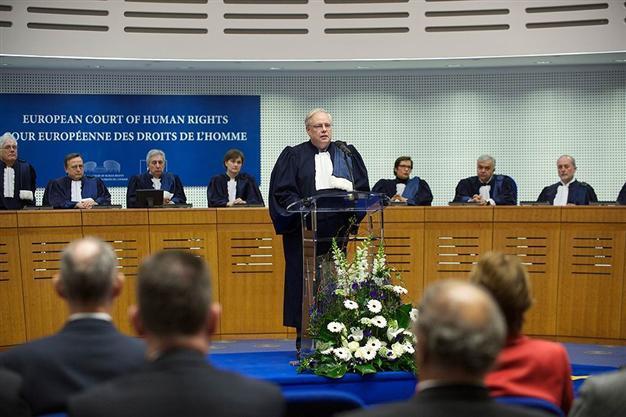Euro court calls on Turkey to amend religious courses
STRASBOURG
 The Turkish education system is “still inadequately equipped to ensure respect for parents’ convictions” and violates the “right to education,” the European Court of Human Rights (ECHR) has concluded, in a case stemming from Alevi complaints about mandatory religious classes.
The Turkish education system is “still inadequately equipped to ensure respect for parents’ convictions” and violates the “right to education,” the European Court of Human Rights (ECHR) has concluded, in a case stemming from Alevi complaints about mandatory religious classes.In 2011, applicants Mansur Yalçın, Yüksel Polat and Hasan Kılıç, who are adherents of the Alevi faith and whose children were at secondary school at the relevant time, complained that the content of the compulsory classes in religion and ethics in schools was based exclusively on the Sunni understanding of Islam, claiming that Article 2 of the European Convention on Human Rights Protocol No. 1 (right to education) had been violated.
In its ruling, the court observed in particular that in the field of religious instruction, Turkey's education system was still inadequately equipped to ensure respect for parents’ convictions.
“Turkey has to remedy the situation without delay, in particular by introducing a system whereby pupils could be exempted from religion and ethics classes without their parents having to disclose their own religious or philosophical convictions,” said the court.
The ECHR examined the case in the light of the curriculum of the compulsory religion and ethics classes, as well as the changes including information about the various beliefs existing in Turkey, including the Alevi faith. It emphasized the state’s duty of neutrality and impartiality in regulating matters of religion.
Bearing in mind the particular features of the Alevi faith compared tp the Sunni understanding of Islam, the applicants could legitimately have considered that the approach adopted in the classes was likely to result in their children facing a conflict of allegiance between the school and their own values, the court also added.
The fact that the Turkish system only offers Christian and Jewish pupils the possibility of being exempted from religion and ethics classes suggested that Alevis faced conflicts between the religious instruction given by the school and their parents’ religious or philosophical convictions, the ECHR ruling added.
The court noted that almost all European Convention signatory states must offer at least one route by which pupils could opt out of religious education classes, by providing an exemption system or the option of studying an alternative subject, or by making attendance at religious studies classes entirely optional.
On June 22, 2005, the applicants asked the Education Ministry to initiate a consultation process with leading members of the Alevi community with a view to overhauling the curriculum of the religion and ethics classes to include Alevi culture and philosophy. After being notified of the decision to reject their proposal in a letter from the Directorate of Religious Education attached to the Education Ministry, the applicants and 1,905 other people challenged that decision in an Ankara administrative court.
An expert report by a professor of Islamic studies and lecturers in education and religious sociology on the textbooks used in religion and ethics classes was included in the case file, which stated that the curriculum did not give precedence to any particular faith and adopted a supra-denominational approach.
However, the applicants filed additional observations challenging the report. They argued in particular that the textbooks treated the Alevi faith as a tradition or culture and not as a belief system in its own right.
The Ankara administrative court again ruled against the applicants on Oct. 1, 2009, relying on the expert report. Their subsequent appeal on points of law was dismissed by the Supreme Administrative Court in a judgment on Aug. 2, 2010, which held that the judgment at first instance was in conformity with the relevant procedures and laws.
After the exhaustion of all these paths, the applicants turned to the ECHR.
















